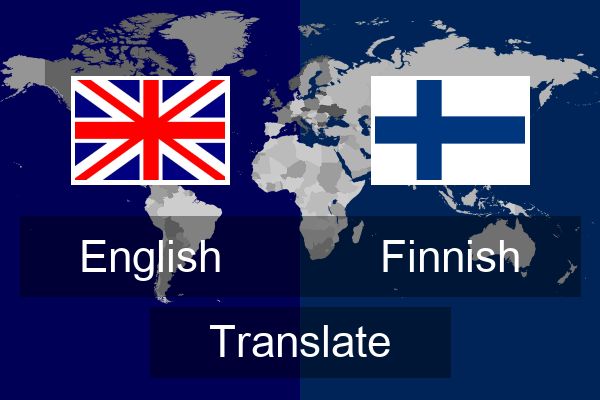Käöntöjä: A Guide from Finnish to English for Finnish People

Käöntöjä means Translator and when it comes to translation, we know different languages. Language translation is a unique skill that enables communication between speakers of different languages.
It is a multi-faceted process that requires a deep understanding of languages, cultures and communication.
In this article, we get to know the world of language translation, its history, current status and future prospects.
The Importance of Language Translation – Käöntöjä
The Role of Translations in Communication
Language translation is a key part of global communication. It enables the exchange of information between people belonging to different language groups, promotes intercultural understanding and supports a multilingual society.
Without translators, complex international negotiations, the dissemination of literature and the availability of a wide variety of texts in different languages would be challenging.
Challenges in Intercultural Translation
Cultural translation requires precision and sensitivity. Languages are not just collections of words; they contain deep-rooted cultural references and meanings. Translators must understand these nuances and ensure that the message is conveyed correctly in the target culture. Translations may contain idiomatic expressions that must be explained in an understandable way.
A History of Translation: From Past to Present
The history of translation dates back to ancient times, when important texts were translated into different languages. In ancient Greece and Rome, there were significant works of translation that contributed to the wide distribution and exchange of information. The development of translation has continued for centuries, and today it benefits from the aids provided by technology.
The Translation Profession: The Multifaceted Role of the Translator
Translators are professionals who ensure that the message remains original in the target language. Their tasks are not only limited to translation work, but they also need to understand subject areas and context. The role of translators can vary from translating literature to translating technical texts and translating business documents.
The Importance of Translator’s Language Skills
Translators need excellent language skills in both the source and target languages. They must know the grammar, vocabulary and Idioms of the languages in depth.
Special fields in the translator’s work
Translators may specialize in certain fields, such as medicine, legal texts or scientific literature. This requires a deep understanding of the subject in question as well as the specific vocabulary of the field.
Cultural Nuances in Translation – Käöntöjä
Cultural differences can be the biggest challenge in translation work. For example, the use of the same word in different cultures can refer to different things. The translator must be aware of these differences and ensure that the translation is culturally appropriate.
Idiomatic Translations
Idiomatic expressions and sayings can be the most challenging parts of translation work. The translator often has to find an equivalent idiomatic expression in the target language.
Translation errors and their avoidance
Translation errors can lead to misunderstandings and difficulties. Therefore, translators must be extremely precise and careful in their work.
Translation in the Age of Technology
The techniques of translation have developed considerably with technology. Machine translation and translation software can speed up the translation process, but they do not replace the skill of a human translator.
Challenges and Benefits of Machine Translation
Machine translation is based on algorithms that can translate large amounts of text quickly. However, it may be inaccurate, especially in culturally charged texts.
The Role of Translation Software
Translation software can be useful tools for translators, but they require human supervision and correction to ensure accuracy.
Language Reversals in the Profession
Translators can work in different fields, such as literary, legal, medical and business translators. They can work as freelancers, in translation agencies or in companies that need translation services.
Translation Project Management
The success of a translation project requires careful planning, schedule management and cooperation between translators and clients.
Ethical Perspectives of Translation Work
Translators face ethical issues, such as editing a text for political purposes or preserving cultural sensitivity.
Future Perspectives in Translation – Käöntöjä
The future of translation looks promising, but also challenging. With the help of technology and machine learning, translations can be faster and more accurate, but the role of the human translator remains important, especially in culturally sensitive fields.
The Impact of Technology on the Translator’s Work
Translators benefit from technology as helpful tools, but they must also adapt to new ways of working.
Cross-Cultural Understanding Through Translation
Translations continue to promote cross-cultural understanding, which is especially important in a global society.
Translation services and translators in Finland
Finland has an active translation industry community that offers versatile translation services. Translators in Finland work in different fields and offer high-quality translation work in several different languages.
Finnish Translation Department
The Finnish translation industry has a long tradition, and it has kept up to date with technological advances.
The Role of the Translator in a Multilingual Society
Translators are an important part of a multilingual society and enable smooth communication between different language groups.
Guide to Choosing Translation Services
Choosing a translation service can be challenging, but finding the right partner is important to ensure high-quality translation work.
Defining the needs of the translation project
The customer must clearly define the project’s needs and expectations from the translation service.
Evaluation of the Quality of the Translation Service
A high-quality translation service offers references and evidence of their previous work.
The Future of Translation – Käöntöjä
Combining Technology and Human Skills
In the field of translation, the future looks promising when technology and human skills are combined. Accuracy and speed may improve further, but the understanding and cultural sensitivity of a human translator remain invaluable.
Translation Challenges and Solutions
Translation always comes with challenges, but professional translators are able to find creative solutions to even difficult problems.
Summary: Bridging Cultures Through Translation
Language translation is an art that unites cultures and enables interaction between different language groups. It is a key part of global communication and promotes cultural diversity.
For more, check the rest of our blog.
